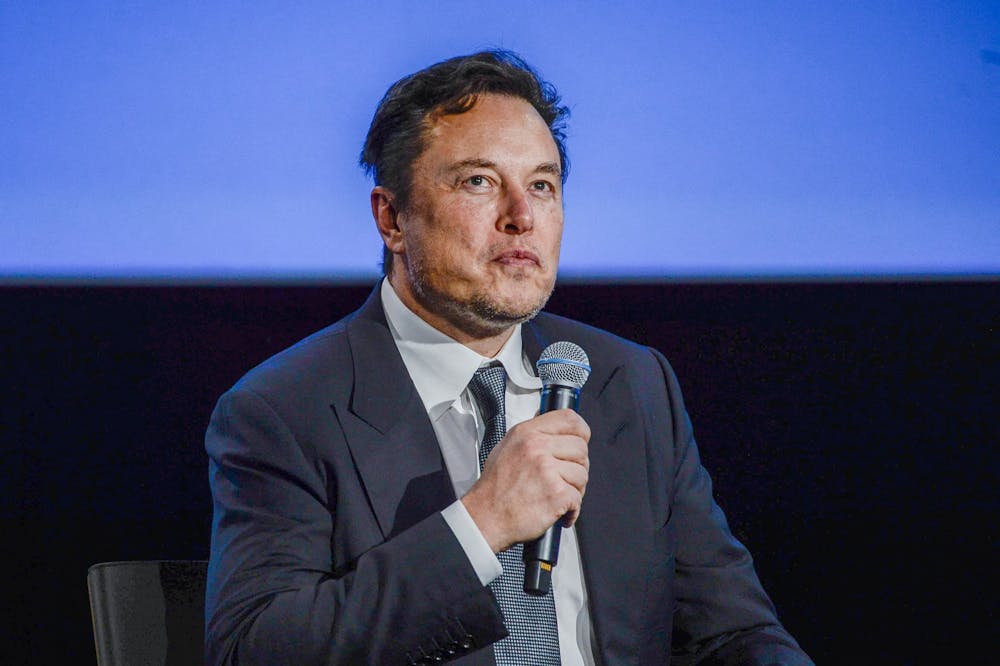It’s well-known that the film “Citizen Kane” is based heavily on the life of William Randolph Hearst. Like Orson Welles’ Charles Foster Kane, Hearst was a fixture of American life and someone whom the general public would’ve been familiar with. At the height of his fortune, according to Britannica, he owned 28 newspapers, 18 magazines and several other radio stations and news services.
Similar to his contemporary Joseph Pulitzer, Hearst was a progenitor of the “yellow journalism” movement, which replaced traditional reporting with a heavily partisan form that had no real commitment to the truth. While originally identifying with the progressive left, Hearst slowly became a zealous anti-communist critical of the labor movement. As an early vocal proponent of the Nazi Party, he even allowed his newspapers to publish articles from a young Adolf Hitler.
Fast forward to today.
It’s been well-documented that, in the 12 hours after Elon Musk became Twitter’s owner, there was a nearly 500% increase in usage of the N-word, according to Brookings Institution. Tweets that included the word “Jew” increased fivefold in the week following the transfer of ownership. Since his reign began, Musk has made it his goal to reinstall the accounts of several problematic public figures who were suspended for everything from racist comments to incitement of violence. This includes — but is nowhere near limited to — former President Donald Trump, Rep. Marjorie Taylor Greene and Andrew Tate.
[Related: Black Voices: Elon Musk is ruining Twitter]
What Musk advertised as a commitment to free speech quickly became a crucible of extreme right-wing political discourse.
As evidenced by Hearst however, Musk is nowhere near the first ultra-wealthy individual to form, or attempt to form, a media empire as a way of espousing his right-wing politics. Aside from Musk, one of the more well-known examples today is Rupert Murdoch. According to Investopedia, Murdoch is the founder and executive chairman of News Corp, a conglomerate whose holdings include The Wall Street Journal. He’s also the founder and board chairman of Fox Corporation, which deals with television stations like Fox News. And, according to AllSides’ Media Bias Chart, the editorial content of both of those outlets range from center-right to far-right.
If Musk — the wealthiest man in America according to the Forbes 400 — has his share of influence on the media landscape, it’s only natural his follow-up, Jeff Bezos, would too. In 2013, Bezos bought The Washington Post after the newspaper of record endured decades of financial trouble. While Bezos has no official influence on the paper’s editorial content, he has had a hand in building the paper’s leadership team, according to the Columbia Journalism Review.
This includes current publisher Fred Ryan, chief of staff for former President Ronald Reagan from 1989 to 1995. Along with being publisher and CEO of The Washington Post, Ryan also currently serves as chairman of the Ronald Reagan Presidential Library Board of Trustees.
[Related: OPINION: We have a gross misunderstanding of the degree of wealth inequality in the U.S.]
On the surface, wealthy individuals like Musk, Bezos or Murdoch buying struggling news outlets seems like a good thing. But it’s important to remember just who the ultra-wealthy ultimately want to benefit: themselves. Every decision a billionaire makes is in the interest of their own pockets — by definition, they cannot make a decision in the benefit of the broader public because their existence as a billionaire is already in detriment to it.
So when the Bezos-owned Washington Post prints an opinion praising his and Musk’s ventures into outer space as a win for society-at-large, they’re ultimately only flattering the ruling class’ vanity while ignoring the real issues this sort of astronomical wealth presents.
What’s important to note about “Citizen Kane” is that it’s a tragedy, not a comedy. The moral of the fable is that money cannot and will not buy happiness. In the end Kane, a man with everything but fulfillment dies alone, a single speck in his immense palace. Maybe the multibillionaire media moguls of today would be wise to heed Welles’ message.
Joey Sills (he/him) is a sophomore studying journalism and political science.




